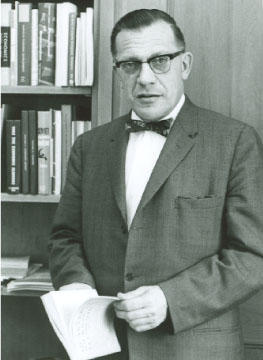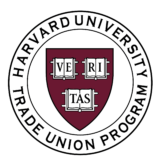
A Short History of the Harvard Trade Union Program
1942-2022
The Labor Education “Experiment”
During the founding era of the Harvard Trade Union Program, it was commonly called “an experiment.” For much of the early twentieth century, workers’ educational movements had themselves greeted the idea of study at elite universities with skepticism and sometimes derision.
At the turn of the century, Great Britain had pioneered one of these efforts, with the founding of Ruskin College near Oxford University in 1899. Though neither controlled nor financed by Oxford University, Ruskin College sent some workers to the university to attend lectures, and others could undergo the exam for the University Diploma in Economics and Political Science. Fred Bramley (1874-1925), the Secretary General of the British Trades Union Congress (TUC), warned the Ruskin College principal not to expect much from his medieval neighbors: “Oxford is a center in which university training has been the monopoly of the sons of the rich.” J. Ramsay MacDonald (1866-1937), the first Labour Party Prime Minister, once equated the venerable university with rank whoredom: “Oxford is a painted lady of whom labor can expect nothing.” [Marius Hansome would later reply in World Workers’ Educational Movements (1931): “This opinion, be it noted, did not deter MacDonald from sending his own son to become educated in that institution.”]
Download: Short History of the Harvard Trade Union Program 1942-2022
